On February 5, 2014, at the invitation of the Department for International Development, Bangor University, activities were organized by the Confucius institute at Bangor University for the Lunch Talk, which is held regularly by the Department. Dr. David Joyner, executive director of the Confucius Institute, first introduced the recent activities of the institute, and expressed his hopes of increased participation and support in the future. Dr. Wei Shi, co-director of the Confucius Institute, then introduced and played the erhu. Because Chinese New Year 2014 brought in the year of the Horse, he chose to play a segment of the piece "Horse Racing." Teachers were interested in the Chinese two stringed musical instrument, and they all had a try on it. After that, Prof. Zhang Liying, co-director of the Confucius Institute, held a calligraphy activity on writing Chinese character "马" (ma, meaning horse). She prepared different calligraphy scripts of the character before giving a Chinese name to each teacher. She informed them that the date for the piece of calligraphy should be written as 甲午 jiawu, rather than2014 (2014 being the 31st year in the traditional 60 year cycle, the jiawu year). Prof. Zhang also introduced doufang (sheets about one foot square with calligraphy for pasting on a wall), xianzhang (an unofficial personal seal), wangfasibao (the four precious articles of the writing table: writing brush, ink stick, ink slab and paper), etc. Philosophy teacher Keith Beasley got "吉思" as his Chinese name, he liked it very much upon discovering that the two characters "吉思" meaning“luck, and thinking” were much related to his major. Teachers learnt, with great enthusiasm, to write Chinese calligraphy on water writing paper. It was difficult to fit so much within a short time, so Prof. Zhang quickly wrote the Chinese character "马" for everyone. They only had to write each of their own Chinese name as an inscription to finish the piece, so they had a chance to write calligraphy on the rice paper with ink. It was not easy to correctly write their own Chinese names by themselves. Sheila Brook wrote her name on the back of paper with great difficulty. But she was still very excited to show off her work. Teachers were unwilling to leave the Lunch Talk when it was over, suggesting that the Confucius Institute organize regular calligraphy classes for teachers.
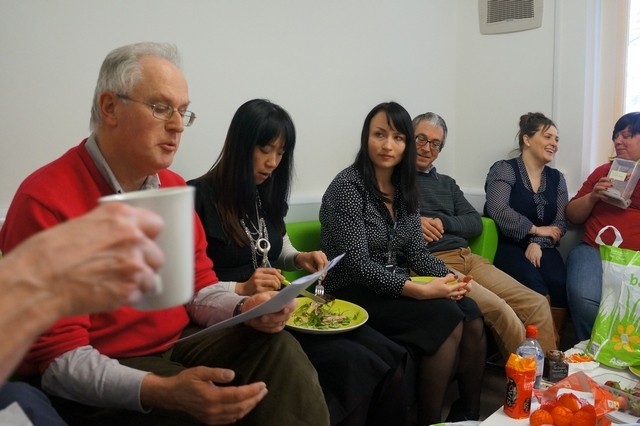
Before the activities Dr. David Joyner, executive director of the Confucius Institute, introduced the recent activities of the Confucius institute, and expressed his hopes for more participation and support for it in the future.

Dr. Wei Shi, co-director of the Confucius Institute, introduced and played the erhu. Because the Chinese New Year 2014 was the year of the Horse, he chose to play a segment of “Horse Racing.”
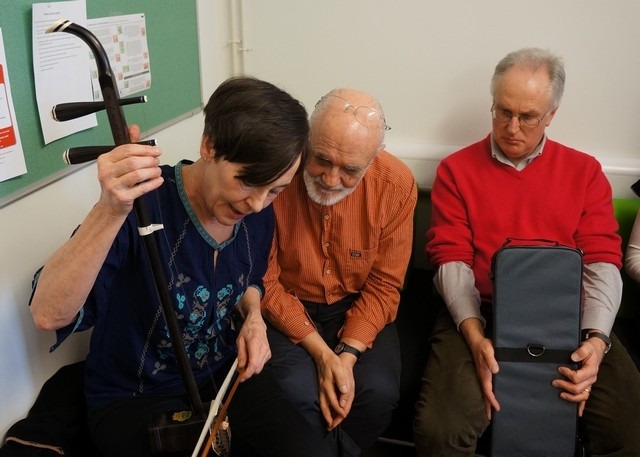
Teachers were interested in this Chinese two-stringed musical instrument, and they all had a try on it.
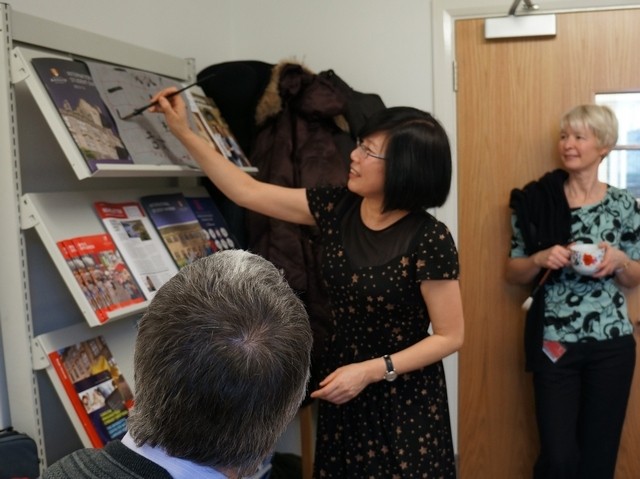
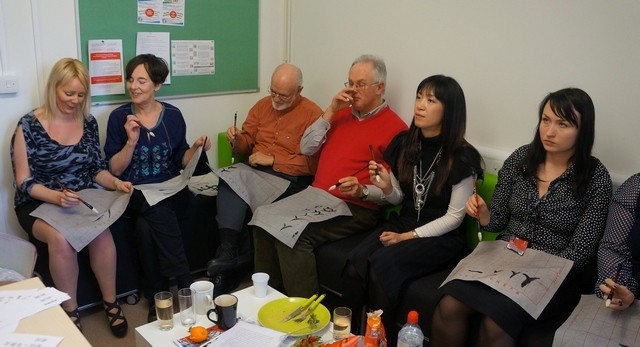
Prof. Zhang Liying, co-director of the Confucius Institute, held a calligraphy activity on writing Chinese character “马” (ma, meaning horse).

Philosophy teacher, sitting in front of the group, Keith Beasley got “吉思” as his Chinese name. He liked it very much upon discovering that the two characters “吉思” meaning“luck, and thinking” were much related to his major.
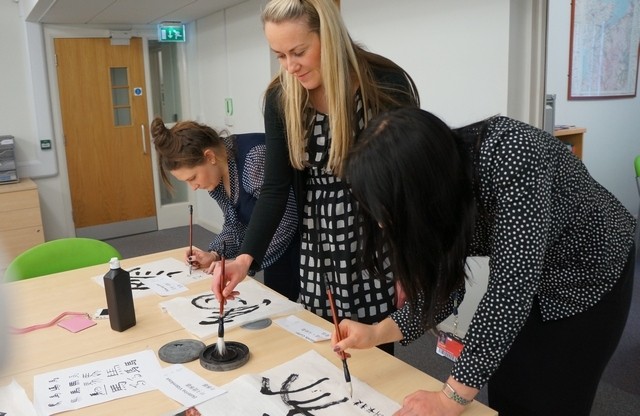
Teachers had a try at writing their Chinese names on the rice paper with ink.
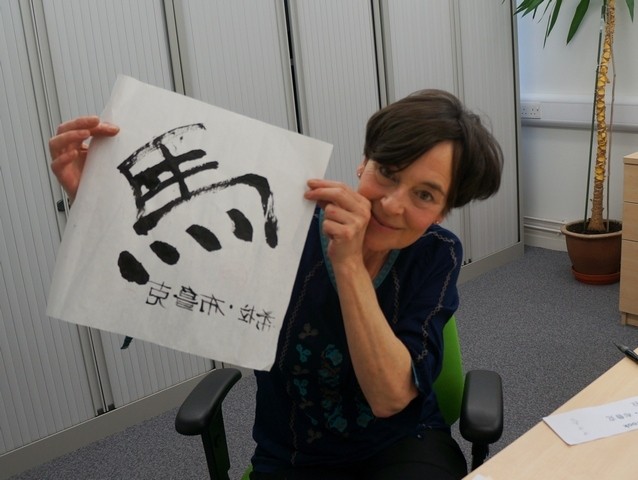
Sheila Brook wrote her name on the back of paper. But she was still very excited to show her work.

Dr. Wu, dean of the Department, pasted Prof. Zhang’s work of Chinese character “马” on the wall, she said that it was a complete calligraphic work containing both seal and inscription.